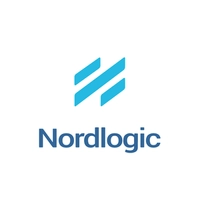PRODUCT OWNER: ROLE, RESPONSIBILITIES AND BENEFITS FOR YOUR PRODUCT TEAM
A product owner is a specialist with a strong understanding of the business as well as the vision, goals and mission of a product. The role of a product owner is central to the development lifecycle, and responsibilities vary depending on the product type and specifics of the development process. A product owner’s primary job is to coordinate a product concept, guide a product team to turn that concept into reality and deliver a product that the target audience would be happy to use.
In deciding whether or not to hire a product owner, employers might feel confused about the exact nature of the product owner’s role and responsibilities. In different companies, product owners’ responsibilities differ depending on the perspective and definition of the role. Some employers might expect tech-savviness from a product owner, while others could require product owners to be more managers than tech specialists. That makes it difficult to determine a universal set of skills a product owner needs to have, leading to employers’ confusion.
This article will discuss what a product owner does and how having one can benefit a company. It will further discuss the reasons for and against having a product owner in the team.
What does a product owner do?
As stated, a product owner plans the product direction and manages the development team responsible for creating and building the product. The product owner should be a thoughtful decision-maker, charged with making tactical and rational decisions about which features to build and when. Obsessive focus on planning and aiming to get the right product to market at the right time is what allows a good product owner to stand out.
In teams that follow the agile methodology, product owners represent both the development team and the client. A person in this role is responsible for managing an extensive group of people and handling a range of activities, typically including the following:
- Create the product vision and ensure alignment across the board
- Make strategic, rational decisions about product direction
- Manage the development process; plan and prioritize features
- Adjust the product backlog
- Be a mediator between the client and the team; clarify technical aspects (constraints, drivers, opportunities and benefits) to the client; clarify business requirements to the development team
- Control the project budget and maximize the delivered business value
A product owner is a connector rather than a doer and doesn’t usually write code or manage the internal technology of a product. In theory, the role doesn’t require any obligatory experience with the technology stack. However, having a tech background helps product owners to bridge the gap between technical and business aspects and explain complicated technical issues to the clients.
Why does your company need a product owner?
As part of an agile team, a product owner is responsible for smoothing the development process and clarifying any misunderstandings that pop up. The product owner should be prepared to resolve any contradictions about what the team builds, gather and share product information with stakeholders and make ongoing decisions.
Having someone with those skills on the team provides a range of benefits:
- An agile software development process gets streamlined under the supervision of a product owner.
- A product owner is a reliable source of information.
- The team saves a lot of time by handing over many product issues to the product owner.
- A product owner acts as a single decision-maker when decisions about the product need to be expedited.
The product owner role has its roots in agile development. Product owners set key milestones, guide the team towards them and report directly to the development team. They need to be persuasive coordinators and strong communicators so that they can lead people.
But a product owner is not a scrum master, although these roles have common ground. Scrum masters are responsible for the production process, managing teams, planning sprints, communicating with stakeholders and often the handling of customer and product support. In most scenarios, they are external partners to product owners, with whom they collaborate.
Efficient product owners understand client needs. They know the audience and the objectives of the product, which enables them to estimate the value a new product feature could bring to users. They also have ideas about what could give a competitive advantage to the product and what would make a client happy.
A great product owner needs to be able to understand the clients’ pain points, their motivations and their journey. If a client has issues with the product, the product owner will have to invest more time and effort in monitoring the testing of the current product version by the team. If a client has high expectations for the product, the product owner will be highly motivated to lead the client to an amazing experience.
When the product is finalized, the product owner is responsible for getting that product to market. Product owners take a lot of pride in the product they build and are driven by a vision and mission to deliver a valuable product.
Pitfalls of hiring a product owner
Some employers could decide not to add a product owner to the team because of the vague nature of the role and responsibilities.
The confusion starts with the position a product owner occupies in a company. A product owner’s job is mainly to communicate with people of different ranks in a team or a company. However, the product owner title can be a mere formality, since the product owner doesn’t actually own the product. It’s often a case that the product owner has little power, and more often than not has to try to negotiate the agenda with those in higher positions.
In addition, employers might delegate to a product owner some tasks that go beyond resolving product issues. Product owners might be engaged in managing budget, creating product vision, sharing responsibility for profit and loss or acting as a product manager. As a result, the roles of a product owner, product manager and business analyst often overlap, so from the company’s perspective, product owners might be redundant since their responsibilities are handled by other specialists.
Conclusion
Product owners play a key role in defining the direction of a product. They work with product managers and developers to establish constraints for the project. Regardless of how complex or simple a product is, the product owner will always be at the center.
The main objective of a product owner is to ensure the success of the product or the feature before it is released. If your company has a clear definition and a distinct set of responsibilities for the product owner, this specialist might become a valuable asset and contribute immensely to your product.

